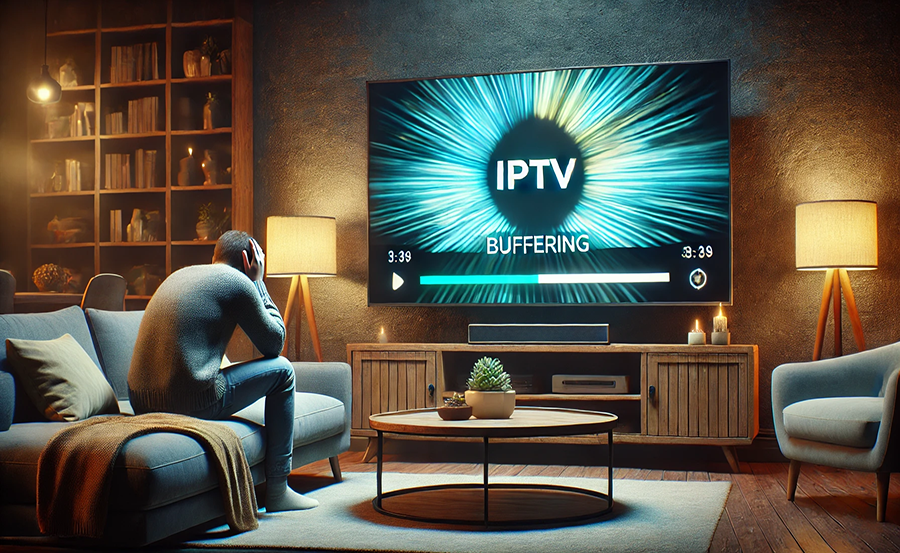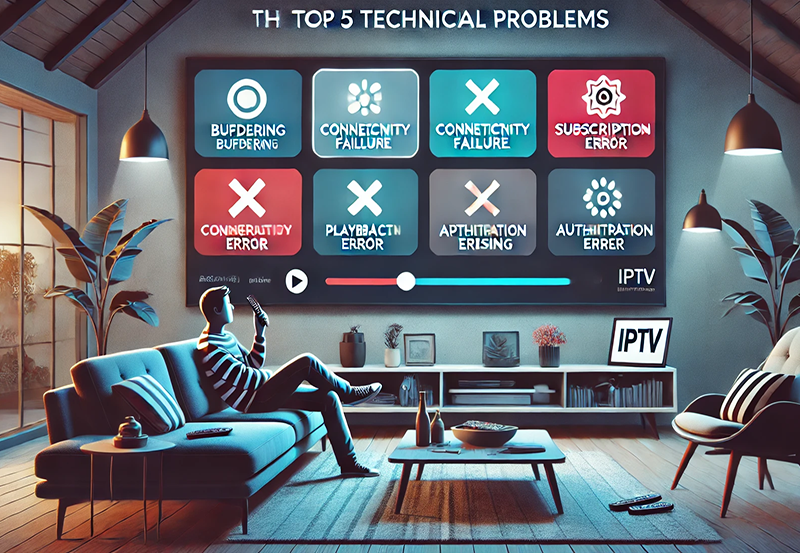In today’s fast-paced digital world, IPTV has grown increasingly popular, offering a plethora of channels and content right at your fingertips. However, one of the most common frustrations users face is buffering. Buffering can disrupt your viewing experience, leaving you wondering why your stream keeps pausing or disconnecting. In this article, we’ll explore the intricacies behind IPTV buffering, highlight the common causes, and offer practical solutions to ensure a seamless IPTV experience. wants Buy 1 Year IPTV subscruption
Understanding IPTV: A Brief Overview
IPTV, or Internet Protocol Television, revolutionizes how we consume media. It brings television programming into your home via internet networks, offering greater flexibility and a broader content spectrum compared to traditional broadcasting methods. With numerous IPTV providers offering competitive services, cutting the cord has become not just an option but a preferred choice for many. To unlock the ultimate IPTV experience, it’s crucial to understand the foundational technology that empowers its functionality.
How Does IPTV Work?
IPTV operates by delivering television content over internet protocol networks instead of conventional terrestrial, satellite, or cable television formats. This delivery method allows users to stream the media content continuously, breaking down the need for manually downloading videos. IPTV employs a packet-switched network like the internet, where content gets divided into smaller packets and sent to the viewer’s set-top box via a broadband connection.
The beauty of IPTV lies in its ability to offer services like live television, time-shifted media (including catch-up TV), and video on demand. As simple as the process might sound, several factors can influence the smooth transmission of these packets, leading to common issues like buffering.
Types of IPTV Services
Consumers often choose IPTV for its diverse offerings tailored to different viewing preferences. The types primarily include:
- Live Television: Streaming shows that are broadcast as they air.
- Time-Shifted Media: Allows viewers to replay past shows or episodes on demand.
- Video on Demand (VoD): Offers access to a vast library of videos that can be watched anytime.
Understanding these fundamental aspects can facilitate troubleshooting when you’re experiencing buffering or other disruptions in your viewing experience.
Why Does IPTV Buffer? Identifying the Core Causes
Buffering is a common annoyance that many IPTV users encounter, and it usually signifies a delay in the video stream data reaching your device. Several factors contribute to this problem, ranging from network-related issues to hardware limitations. We’ll delve into these elements to shed light on the underlying reasons behind IPTV buffering.
Network Connectivity Issues
One of the primary causes of IPTV buffering is unstable or inadequate network connectivity. A stable internet connection is critical for streaming uninterrupted content. Factors such as network congestion, limited bandwidth, and interference can significantly affect streaming quality.
When multiple devices share the same network, bandwidth allocation becomes subdued, causing a lag in data transmission necessary for seamless streaming. Network hardware like routers and modems, if outdated or improperly set up, can also throttle your IPTV performance.
Potential Solutions for Better Connectivity
- Upgrade your internet plan to a higher bandwidth to accommodate multiple devices.
- Use an Ethernet connection for your main streaming device to ensure maximum data throughput.
- Regularly reset and upgrade your modem or router firmware to improve performance.
Server-Related Problems
Another significant cause of buffering is server-side limitations, often stemming from the IPTV provider itself. Servers not optimized to handle large traffic influxes can result in streaming bottlenecks, especially during peak viewing hours. Understanding your provider’s capabilities is crucial in ensuring a smooth experience.
How to Use IPTV for Streaming Science Content




